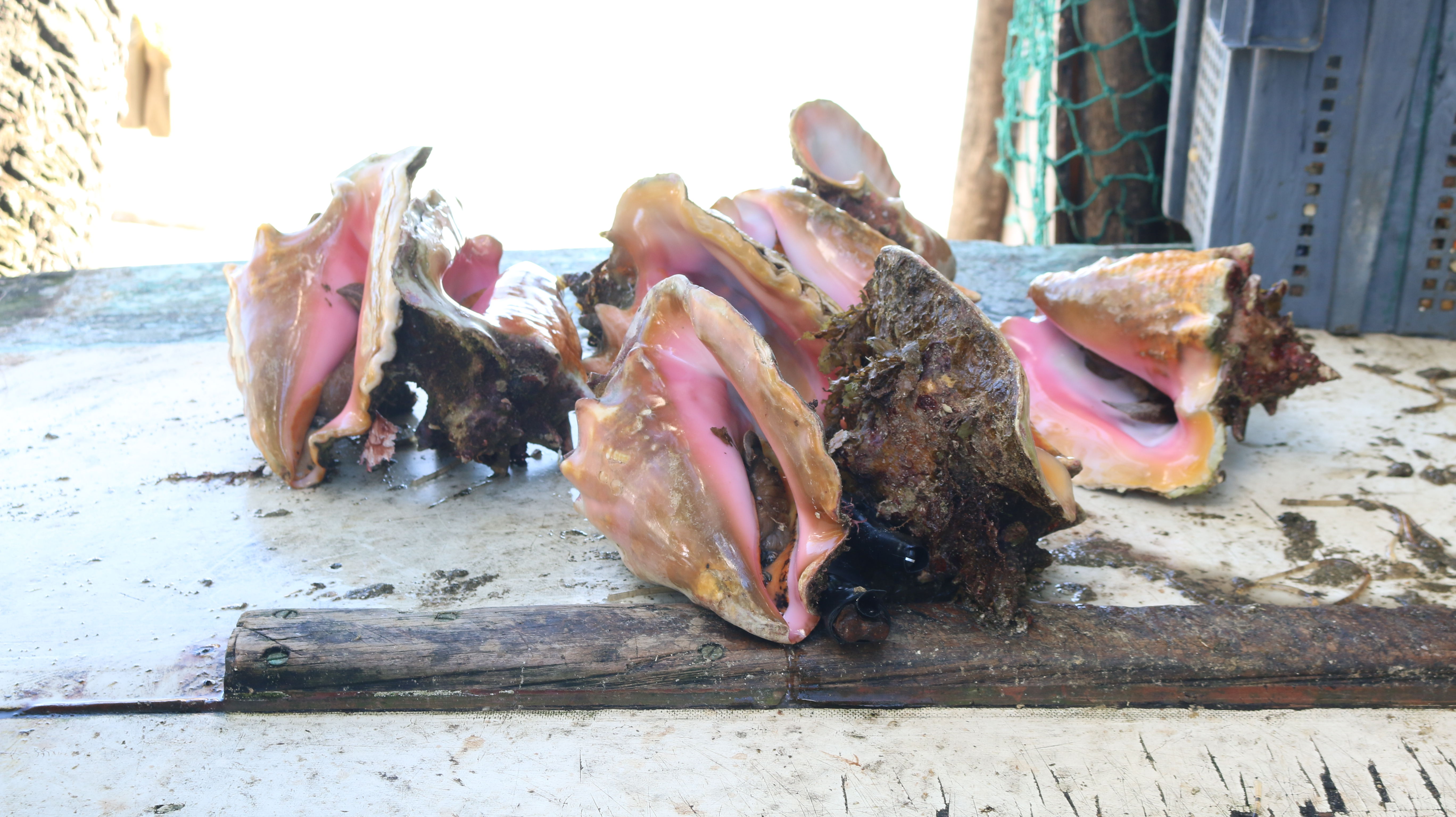Blue BioTrade Project supports a study on the Saint Lucia Conch Industry
Media Release
Working to advance the sustainable blue economy and sustainable livelihoods, the Blue BioTrade Project hosted a stakeholder consultation workshop on November 4, 2021, to validate a draft country case study titled “Blue BioTrade in Saint Lucia: Developing value for the sustainable trade and production of queen conch in the Caribbean”. This event was hosted by the United Nations Conference on Trade and Development (UNCTAD) and the Organisation of Eastern Caribbean States (OECS) in cooperation with the Convention on International Trade in Endangered Species of Wild Fauna and Flora (CITES) and the Saint Lucia Department of Fisheries.
The objective of the event was to present the main findings of the study to stakeholders, receive detailed feedback on these findings, and prioritise recommendations presented within the report. The event brought together over 30 stakeholders, directly and indirectly, involved in the harvest and management of the queen conch fishery in Saint Lucia, including conch divers, large and small processors, conservation agencies, the Marine Unit of the Royal St. Lucia Police Force, conch artisans, and the Deputy and Chief Fisheries Officers.
The draft case study presented a value chain analysis of the queen conch production in Saint Lucia, identifying the main challenges and opportunities faced by stakeholders, using the BioTrade principles and criteria as a framework of analysis.
OECS Director General Dr. Didacus Jules in his remarks at the consultation noted that
“An economic cluster based on identified opportunities, shared efforts and deep collaboration can increase income and sustainability of queen conch products.”
Hon. Alfred Prosper, Minister of Agriculture, Fisheries, Physical Planning, Natural Resources, and Co-operatives delivered the opening remarks.
"Managing our resource sustainably in the face of global crises is essential to unlock new markets for the benefit of everyone.”
Several industry development opportunities from the report were presented including;
- Enhancing diver safety;
- Improving export access through certification of processing facilities;
- Enhancing the value earned by local stakeholders from the sale of queen conch pearls.
Stakeholders also provided feedback on the main challenges they faced including:
- Lack of legal access to export markets such as Martinique;
- The need for stock assessments to implement resource management measures that improve sustainability.
Information on the BioTrade principles and criteria, and how these guidelines can be applied to the queen conch value chain to improve sustainability, profits, and marketability were highlighted. Stakeholders were also informed of the risk of trade suspensions due to non-receipt of annual reports, and how CITES can support local authorities.
Other case studies on the queen conch value chains in Grenada and Saint Vincent and the Grenadines will also inform the Saint Lucia study and stakeholders at a regional workshop on a regional Blue BioTrade Action Plan in 2022.
The OECS Blue BioTrade Project is being implemented in partnership with the European Union (EU) under the OECS - EU Regional Integration through Growth Harmonization and Technology (RIGHTH) Project.

.png)
.jpg)